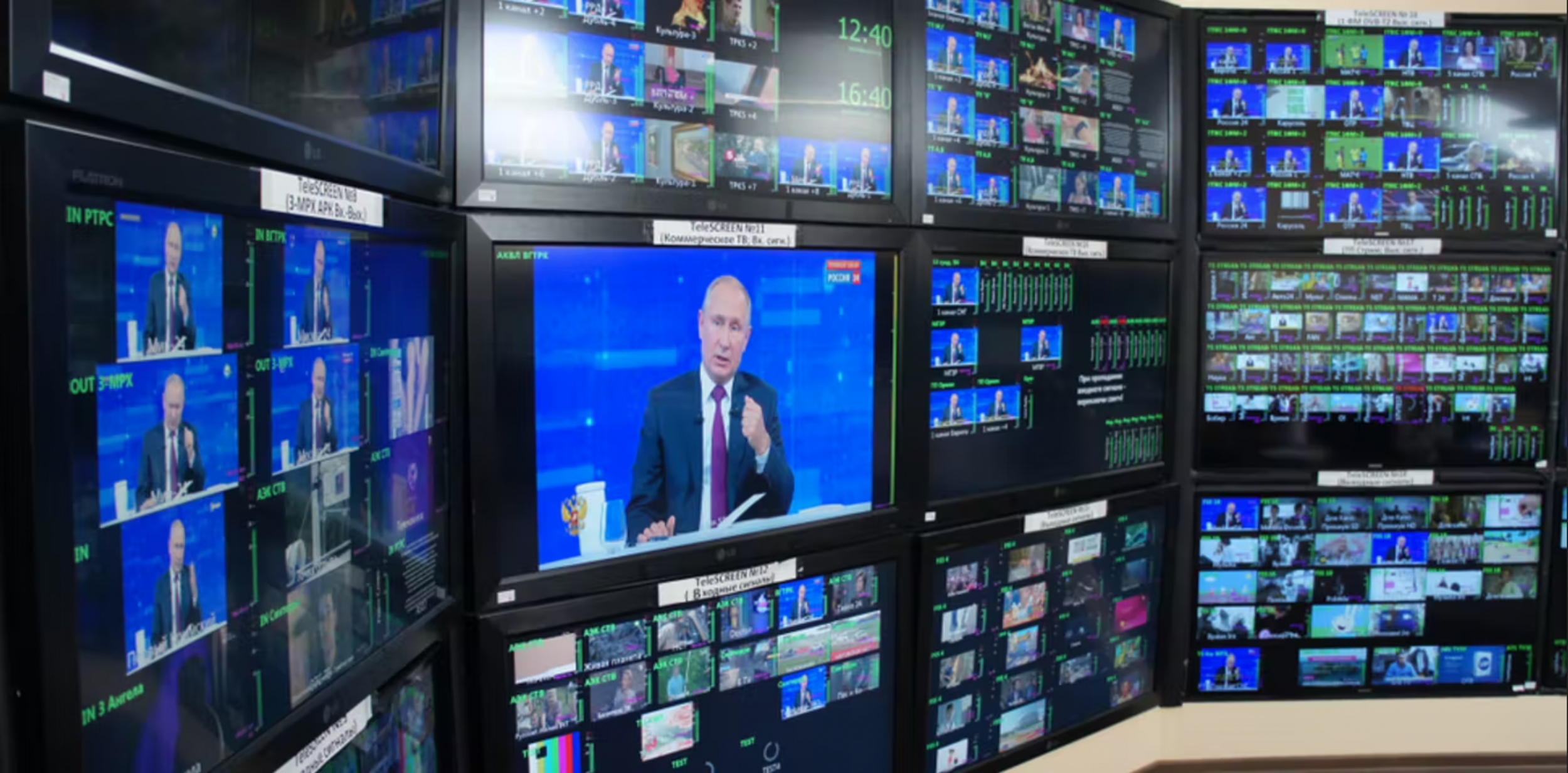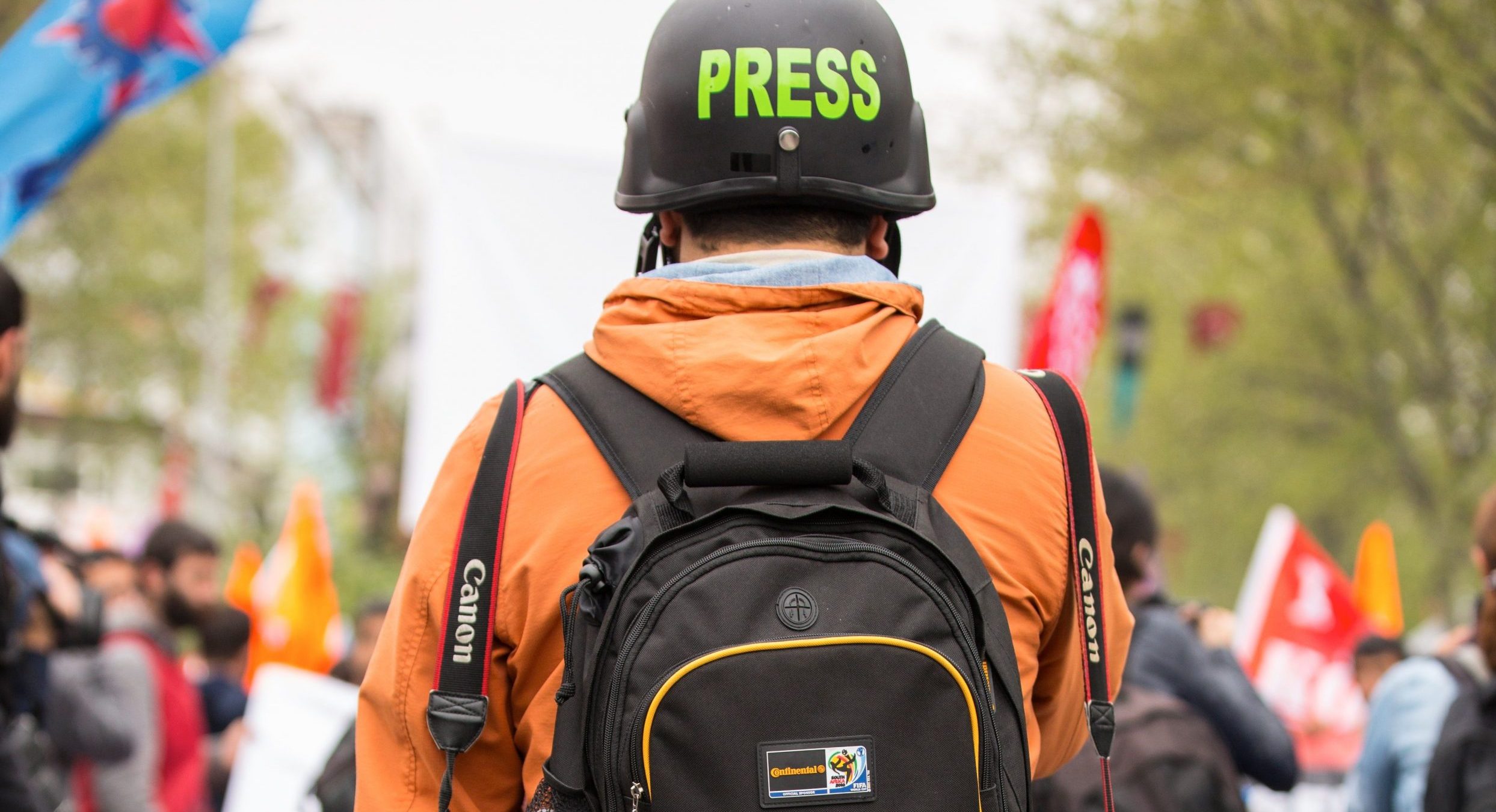
 It was announced at the end of February that Kremlin-backed media outlets Russia Today (RT) and Sputnik would be banned in the EU, and the decision was confirmed by the Council of the European Union on 2 March 2022, meaning that no broadcasters or online platforms are permitted to distribute RT/Sputnik content within the EU, and regulators are expected to monitor compliance. The ban had led to heated discussions regarding the potential consequences for freedom of expression and access to information online, and to a proposal for a new crisis mechanism in the latest version of the Digital Services Act. Here, Professor Natali Helberger of the University of Amsterdam and Professor Wolfgang Schulz of the Hans-Bredow Institute, Hamburg, explain the implications of the ban for media freedom and freedom of communication.
It was announced at the end of February that Kremlin-backed media outlets Russia Today (RT) and Sputnik would be banned in the EU, and the decision was confirmed by the Council of the European Union on 2 March 2022, meaning that no broadcasters or online platforms are permitted to distribute RT/Sputnik content within the EU, and regulators are expected to monitor compliance. The ban had led to heated discussions regarding the potential consequences for freedom of expression and access to information online, and to a proposal for a new crisis mechanism in the latest version of the Digital Services Act. Here, Professor Natali Helberger of the University of Amsterdam and Professor Wolfgang Schulz of the Hans-Bredow Institute, Hamburg, explain the implications of the ban for media freedom and freedom of communication.
It shall be prohibited for operators to broadcast or to enable, facilitate or otherwise contribute to broadcast, any content by the legal persons, entities or bodies listed in Annex XV.
- Art 1 (1) of the Council Regulation (EU) 2022/350 of 1 March 2022 amending Regulation (EU) No 833/2014 concerning restrictive measures in view of Russia’s actions destabilising the situation in Ukraine, L 65/1)
Just a few months ago, a sentence like this from an EU Council regulation would have been unthinkable. A sacrosanct principle of the European media order is the ban on state censorship. So does this ban goes against the very values and freedoms that the European Union tries to uphold? And if so, what are the implications?
By banning media outlets from being available in the European Union, the Council is intervening in an area (media regulation) that is usually left to the Member States. It is undisputed – and has been confirmed many times by the European Court of Justice – that it is the sole responsibility of member states to shape the media landscape; this is part of their cultural competence. Even so, most member states remained quiet in the face of their authority being eroded. The general spirit is that we need to stand together to be tough on Russia. That is understandable in the face of the unjustified and atrocious Russian military invasion that is taking place, and the suffering of the Ukrainian people. But what are the ramifications for the future of censorship?
Does the right to FoE apply to Russian state media?
The Council decision repeatedly states that it fully respects fundamental rights, including the right to freedom of expression. The question is: do the deeds follow the words? As a rule, all forms of speech enjoy freedom of expression protection, even disinformation and some forms of propaganda that are not declared unlawful by national laws. Hence, there are reasons to argue that all media, even RT and Sputnik, do enjoy freedom of protection rights. Does Article 11 of the EU Charter of Fundamental Rights, concerning freedom of expression, apply to RT and Sputnik? Some argue that Sputnik does not qualify as media, but is essentially the prolonged arm of the Russian government, and as such cannot enjoy freedom of expression rights.
To answer that question we have to consider two factors. If the companies are affiliated with a foreign state, they cannot invoke fundamental rights under the EU Charter or the European Convention on Human Rights. Here, the status of the actor, not the content, makes the difference. If the companies are not affiliated with a state, the question is then whether the nature of the content precludes protection or at least justifies limitations. The Organization for Security and Co-operation in Europe distinguishes different forms of propaganda: propaganda for war and hatred, which according to the International Covenant on Civil and Political Rights is unlawful and demands legal action with appropriate measures in accordance with international human rights law, even though it may not be declared unlawful in all member states. The second type of propaganda may be against professional standards of journalism, but does not necessarily violate international law. Which type of propaganda do we find on RT and Sputnik? How big a proportion on Sputnik and RT is war propaganda? The fact is: we do not know, or at least the Council Regulation does not present clear evidence. Nor does it appear to be a clear cut case, or easy to find out more, not at least because both senders are categorically banned.
The fundamental problems with the ban
Which leads us to one potential and fundamental problem with the ban, namely that European citizens, policymakers and journalists can have a very legitimate interest in seeking an authentic impression of the narratives of Russian propaganda. One of the historical roots of freedom of information in Europe lies in the experience of prohibiting the listening of “enemy broadcasters” by oppressive regimes. A problematic side effect of such a ban is that it forces RT and Sputnik content into the shadow, preventing EU citizens and the media to recognise and formulate a resilient response to wrongful propaganda, and affecting their right to receive information.
The protection of fundamental rights is not unlimited: limits are possible, provided they are necessary in a democratic society and proportionate. But it is the proportionality of a complete ban of a broadcasting service like Sputnik or RT that is at question here. In normal times, we would need to assess and demonstrate the danger that RT content poses. That is likely to be different between the Baltic states and other countries in which large parts of the population have links with Russia, as compared to, let’s say, Portugal or Denmark. Right now, there is simply very little data available on the actual reach of RT and Sputnik in different European countries, and across different platforms (for some first estimates, but also the difficulty of gathering relevant data, see this thread from the Reuters Institute). Other considerations, such as the duration, the existence of potential due process safeguards and the potential effectiveness of the action would need to be considered. According to the regulation, the measures, for example, would be maintained until either the war has ended or “the Russian Federation, and its associated media outlets, cease to conduct propaganda actions against the Union and its Member States.” Without a clear timeframe or definition of what propaganda entails, this could translate potentially into a perpetual measure. The Council Regulation itself provides little evidence that a process of careful weighting has taken place.
The scope of the measure is also unprecedented, covering audiovisual media and social media. The ban is a fundamental departure from the general monitoring ban in Art. 15 of the E-Commerce Directive. Art. 15 was a critical element of our European approach to the open internet and media freedom. It made clear that any state-imposed orders on social media to monitor their platforms and ban particular types of content are not compatible with European values. The pending Digital Services Act (DSA) does not change this. This flagship response of the EU to the problem of disinformation legislates for more societal responsibility for very large online platforms. Still, it leaves it explicitly to the discretion of the platforms themselves to decide if and how to deal with any risks to fundamental rights and public values, precisely to avoid a situation in which a government tells platforms how to moderate content and instrumentalises platforms for a political goal – worthy or not. Doing so can be a legitimate route for content that is clearly unlawful, but for all other kinds of content, a situation in which governments instruct platforms on which voices to allow and which to suppress is very problematic, and could be the beginning of the end of the open internet and media freedom.
The Council’s decision in this case made short work of the Commission’s restraint regarding regulating social media, with a sweeping ban on enabling, facilitating or otherwise contributing to the broadcast of RT and Sputnik. Many prominent social media platforms banned access to RT and Sputnik within a couple of days. The Council’s decision can and has been read in the spirit of “finally the platforms take responsibility”, but it can also be read as an open invitation to platforms to question some of the critical tenets of responsible content moderation that Europe has tried to impress on them (here and here). And indeed, only a few days later, Meta announced that it would temporarily not enforce its community policies and allow posts that include hate speech and calls to violence, as long as those are directed at Russian soldiers and Putin himself. Concerns about the ability of platforms to engage in politically-motivated forms of content moderation were until recently one of the main reasons why the European Commission proposed the DSA in the first place.
The Council may well have been acting with the best of intentions and trying to do its bit in exercising pressure on Russia to stop waging war and blatantly disregarding key principles of the international order and fundamental rights, including Russia’s war on media freedom. And yet, one cannot fail to notice a certain irony here. The European response to a Russian ban on all media that call this a war, is a European ban on media outlets that do not call the situation in Ukraine a war.
What next?
The Council decision has been challenged before the European Court of Justice by RT France, but also by the main Dutch journalists union. According to a spokesperson of the Dutch journalists union, allowing the ban to go unchallenged could set a precedent for banning other politicized news outlets. Meanwhile, the ban did already inspire discussions around including a new crisis response mechanism in the DSA. According to a new Art. 27a DSA, the European Commission will be entitled to demand in times of crisis that Very Large Online Platforms or Very Large Online Search Engines take extra measures, whereby the notion of crisis is defined rather broadly as “extraordinary circumstances [that] lead to a serious threat to public security or public health in the Union or in significant parts thereof”. The last-minute addition to the regulation has been criticised by civil society organisations because it would constitute an overly “broad empowerment of the European Commission to unilaterally declare an EU-wide state of emergency” and enable potentially far-reaching restrictions of freedom of expression rights. As EDRi and the other 37 civil society organisations stressed, decisions that affect freedom of expression and access to information cannot be legitimately taken through the executive; rather they should be taken by an independent judicial body and be subject to democratic control, particularly in times of crisis. Suggestions by the Dutch government and others to subject Commission decisions according to Art. 27a DSA to a majority vote from the member states have not made it in the latest version of the DSA.
These concerns about the importance of democratic safeguards and state independence around measures that can potentially restrict freedom of expression and fundamental rights must be taken seriously. So when Europe is agreeing on its approach to disinformation in the DSA, and debating the possible contents and directions of the European Media Freedom Act, it will also have to carefully consider its commitment to media freedoms in times of crisis. It has happened time and again in history that even states and communities committed to the rule of law and human rights act unlawfully in crises with good intentions. Their strength should then lie in creating a regulatory framework for crisis situations for future cases. The European Media Freedom Act could be the right place here to create emergency measures for communication content that safeguard fundamental rights and state neutrality.
Furthermore, the case reveals a fundamental fault line that still runs through the competence structure, not only in times of crisis: How far do the competences of the member states extend in the case of social effects of non-journalistic/editorial content? If their authority is limited to the traditional concept of the media, this would be outside their cultural competence. If one assumes, however, that it is the task of the member states to ensure the functioning of public communication more broadly understood, combating disinformation that is detrimental to democracy is within their remit. Conceptual work still needs to be done here.
This article reflects the views of the authors and not those of the Media@LSE blog nor of the London School of Economics and Political Science.





